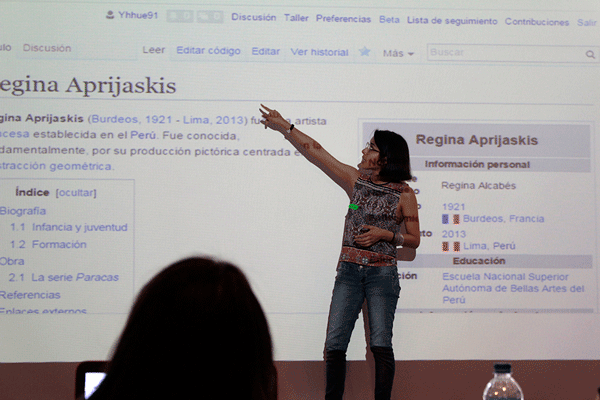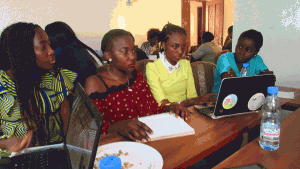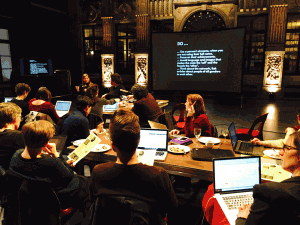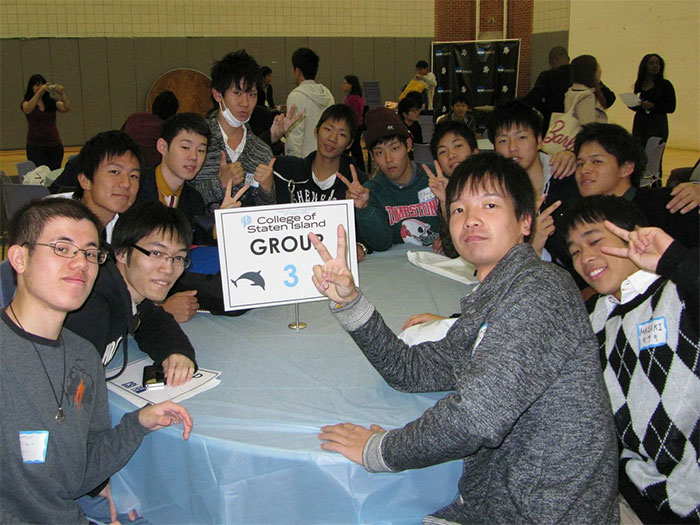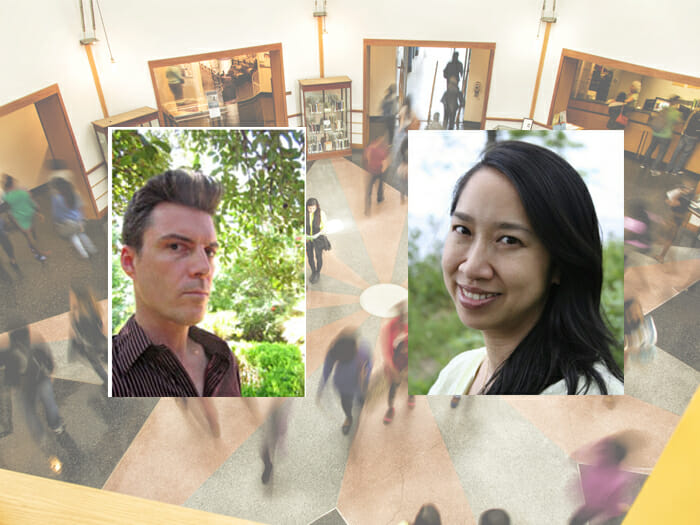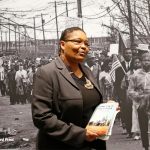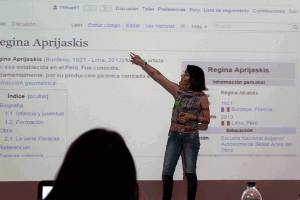
A workshop facilitator explains aspects of Wikipedia to participants at an Art+Feminism edit-a-thon in Lima, Peru, in 2016.
No matter how you feel about it, Wikipedia is where history is recorded today. It’s a huge repository of information that generated almost 200 billion page views in 2017, making it one of the top 10 most visited websites.
But Wikipedia also has a significant gender gap: roughly 15 percent of all contributors are cis or trans women, or non-binary people, which is reflected in its content. An initiative co-founded by a College of Staten Island professor has won a $150,000 grant to continue working on the issue six years after it started with a conversation among artists and activists .
Art+Feminism, an initiative co-founded by CSI Professor Michael Mandiberg, was also a finalist for the 2018 EQUALS in Tech Awards.
“Wikipedia, like many Open Source projects, has a gender gap,” Mandiberg said. “Primarily cisgender men are the main participants. There’s also a corresponding ethnicity gap but that has not been as well studied.
“The reason that matters is Wikipedia is where we write history, whether we like it or not. It’s an incomplete history if it’s not written by everyone.”
“It’s an incomplete history if it’s not written by everyone” – Professor Michael Mandiberg
A series of conversations about the gender gap led Siân Evans, Jacqueline Mabey, Mandiberg, and Laurel Ptak to co-found Art+Feminism in 2014. They didn’t expect it to be as successful or as impactful as it has been.
“The first time we held an edit-a-thon we thought maybe 20 of our friends would come,” Mandiberg recalled. They ended up filling all 100 chairs in the venue and today organize and host events for anywhere from five to 250 people around the world. That year Evans, Mabey, Mandiberg, and Ptak were named as among the 100 Leading Global Thinkers by Foreign Policy.
Since 2014, over 10,000 people at more than 800 events around the world have participated in Art+Feminism’s Edit-a-thons, resulting in the creation and improvement of more than 33,000 articles on Wikipedia. During its 2018 campaign over 315 events took place on all six inhabited continents and almost 4,000 participants created or improved more than 22,500 articles.
“At our events we hold trainings where we talk about what Wikipedia is, what the rules are and how to edit it, and then people edit together,” Mandiberg said. “We don’t tell participants what to edit, but we encourage them to take an intersectional feminist approach and be conscious of how different systems of oppression, such as race, class, and gender interact.”
With the $150,000 grant from the Wikimedia Foundation, Art+Feminism is looking to the future, seeking to build a sustainable organization that will continue its activities.
“After five years we have fostered a community of 500 event organizers that hold events to improve Wikipedia and improve the way we tell history,” Mandiberg said. “This year we are focusing on continuity. We have appointed McKensie Mack, an anti-oppression consultant, performance artist, and writer, as the director of the project. We are working to establish a non-profit and build some stability into the project so that we can bring more people into leadership positions and ensure the longevity of the project.”
Just what is driving Wikipedia’s gender gap is not entirely clear but there are a variety of hypotheses.
“It could be toxic masculinity online, or the way we socialize women,” Mandiberg said. “Another factor is leisure inequality which stems from women working a second shift, which is a term used to describe the labor women perform at home alongside to their paid work in the formal economy. Conscious of these demands, we have made a point of offering childcare at our events.”
But resolving it is getting more urgent, perhaps.
“We live in an era where certain people talk about alternative facts,” Mandiberg said. “Information literacy is central to a healthy democracy.”

